What is Social-Emotional Learning?
Social and emotional learning (SEL) helps children learn and understand how to manage their emotions, set and achieve positive goals in socially appropriate ways, learn about empathy, learn how to develop positive healthy relationships with adults and children, and learn to make responsible decisions.
The Iowa Department of Education has developed competencies for social and emotional learning. Iowa's SEL Competencies are developed by grade bands (K-2, 3-5, 6-8, 9-12) and focus on four overarching ideas
- SEL is a learning process of acquiring and applying knowledge, attitudes and skills through life, in predictable and unpredictable situations
- SEL involves all adults, as teachers and life-long learners
- SEL helps to create safe, healthy, and supportive environments that extend beyond the classroom to the whole school, home, and community
- SEL promotes learner voice and provides opportunities to encourage, engage, and empower learners to direct their choices, interests, and experiences in multiple contexts.
If you want to learn more specifics about Iowa's SEL Competencies, please click here to go to the Iowa Department of Education website.
How are Ottumwa Elementary Schools teaching and supporting social emotional learning?
The district provides a multi-tiered system of support. All students receive instruction in the Iowa social emotional learning competencies through whole group lessons provided by the classroom teacher and/or school counselor. Schoolwide, each school implements Positive Behavioral Interventions & Supports or PBIS. This sets schoolwide expectations and teaches and reinforces positive behaviors.
Another layer of support is added through our school counselors. These professionals provide social-emotional learning to students regularly while using an evidence-based curriculum. In addition to whole group lessons, counselors provide small group and/or individual lessons. Using the Social, Academic, and Emotional Behavior Risk Screener (SAEBRS), our counselors proactively identify students who may need additional social-emotional support that affects their academics. SAEBRS is a teacher survey used three times each year to commonly evaluate students' overall general behavior, as well as their risk for social-behavior-, academic-behavior-, and emotional-behavior difficulties.Additionally parents/guardians, teachers, and/or administrators may refer students for small group support. The district partners with organizations and agencies within the community to provide students who need support beyond the classroom or small group setting, for example, potential achievers.

